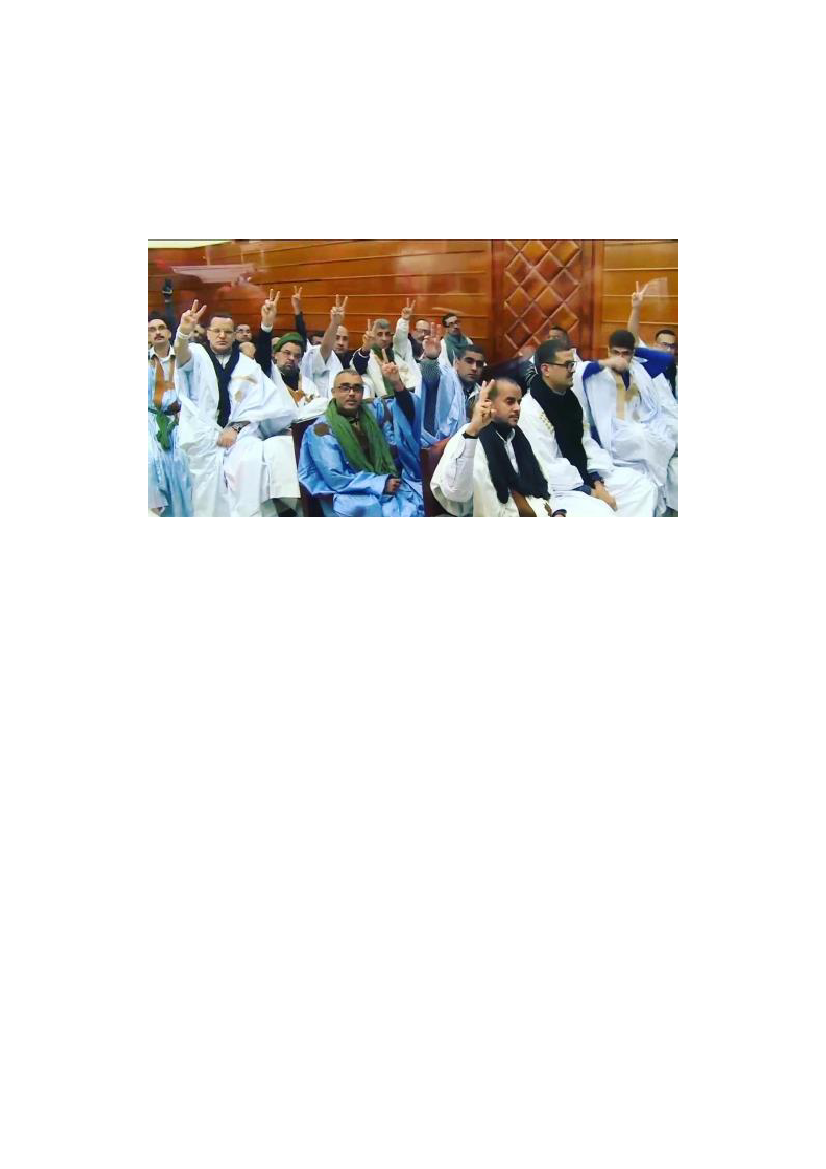
T
RIAL
O
BSERVATION
R
EPORT
; T
HE
G
ROUP OF
G
DEIM IZIK
BY
T
ONE
S
ØRFONN
M
OE AND
I
SABEL
L
OURENCO
Trial Observation Report
From the proceedings held on March 13th until March 15th, against
the “Group Gdeim Izik” in Salé, Morocco
Image published in Moroccan media of “Group Gdeim Izik” inside of the “glass-cage” on
the 26th of December 2016
Executive summary
Our names are Tone Sørfonn Moe (Norway) and Isabel Lourenco (Portugal, Isabel Maria
Goncalves da Silva Tavares Lourenco). We are international observers attending the trial
against the Group Gdeim Izik at the Appeal Court of Salé. We are accredited by Fundación
Sahara Occidental. The overall objective of our attendance is to evaluate whether the trial
against the group is a fair trial, according to Moroccan and international standards. We
decided to present this joint report on the proceedings of the 13, 14 and 15th of March due to
the fact that we had to compare notes since the official translation of the trial in English,
Spanish and French does not coincide, and one of our own translators was forbidden to enter
the court house. This report is based on our attached previous reports.
When assessing this trial observation, we have evaluated the proceedings on the basis of a
political trial; assessed when proceedings are brought up for reasons of political persecution
(political trials) rather than to impart justice, and when it is a great risk that the proceedings as
a whole may be unfair.
On the 17th of February 2013, the Military Court in Rabat sentenced a group of 25 Saharawi
activists to harsh penalties. The
Court de Cassation
found the decision from the Military
Court of Rabat null and void, and referred the case to Court of Appeal in Salé. The Court was
1